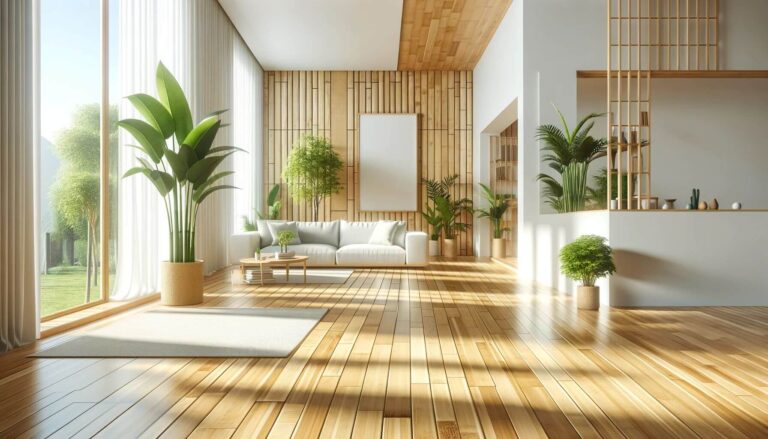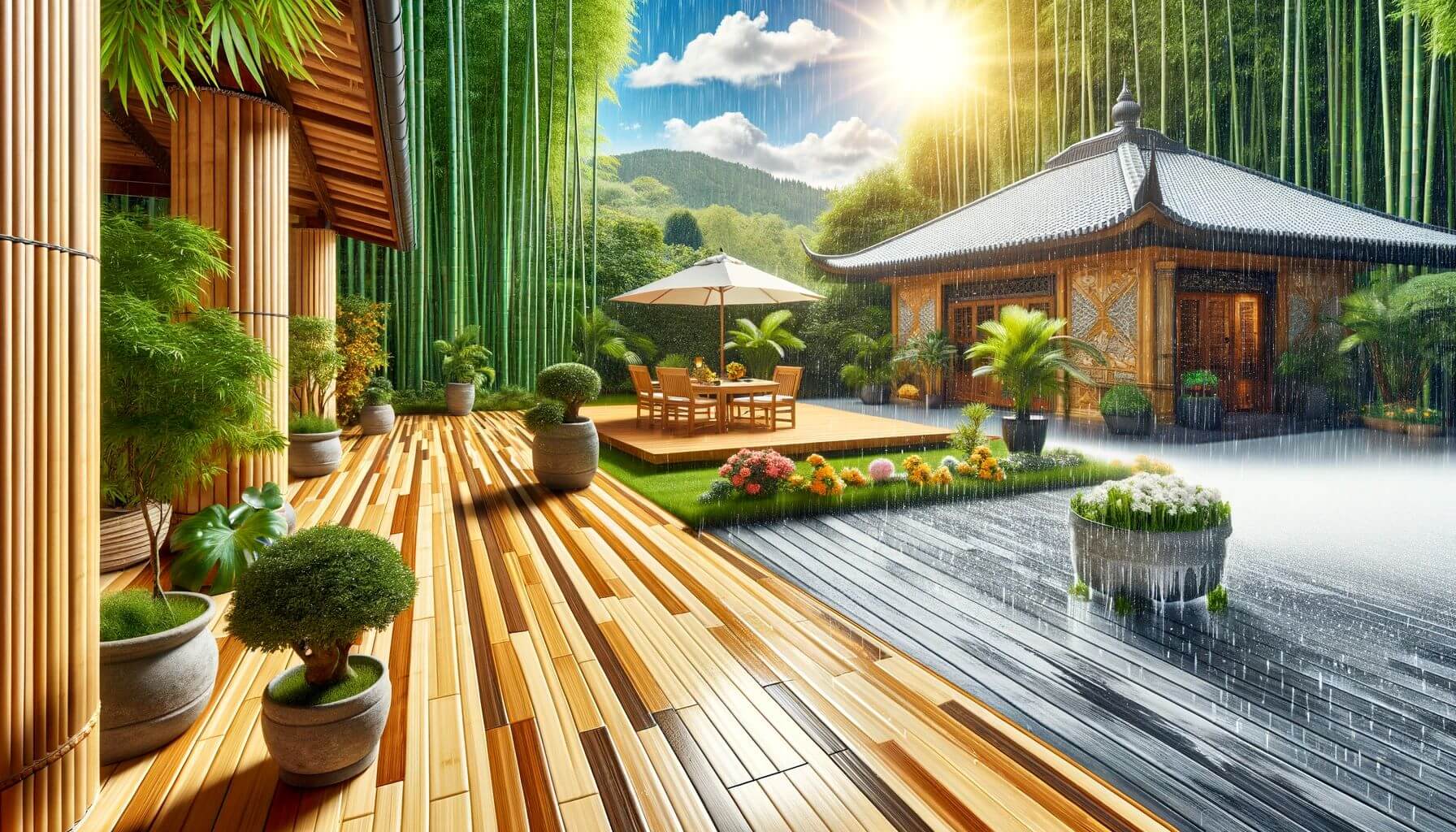
When it comes to selecting materials for your home, resistance to water damage is very important. Various flooring materials offer different levels of protection. Here, we explore the most water-resistant options, ensuring you make an informed decision for your home improvement projects.
Water-Resistant Vinyl Flooring Material
Vinyl flooring is renowned for its water resistance. It is an excellent choice for areas prone to moisture, such as bathrooms and kitchens. Vinyl flooring is made from PVC, which makes it entirely waterproof. Additionally, it is available in various styles, including wood and stone looks, offering both functionality and aesthetic appeal.
For more insights on vinyl flooring, visit Vinyl Plank.
Waterproof Laminate Flooring
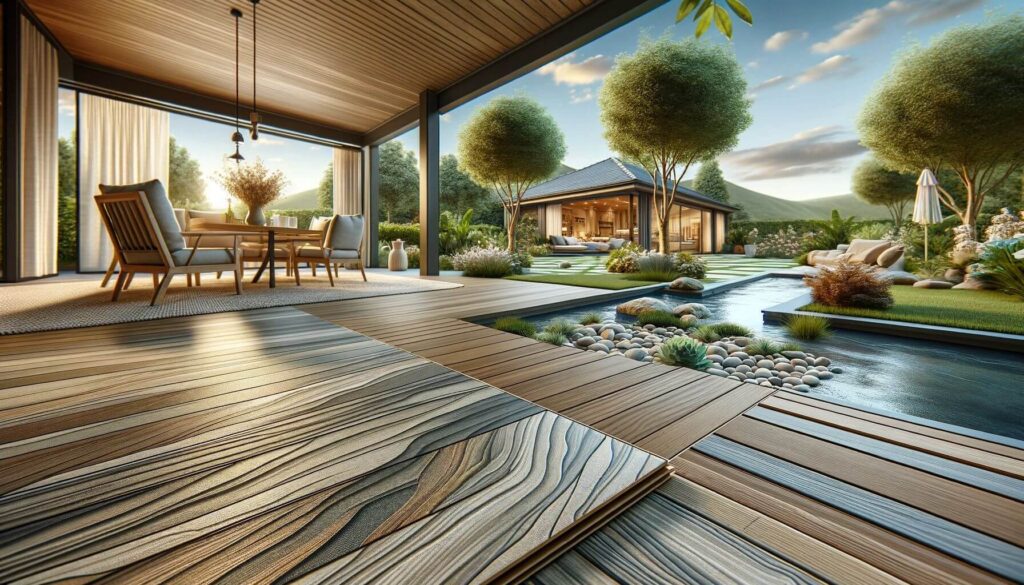
Waterproof laminate flooring is another robust option. Unlike traditional laminate, waterproof variants are designed to resist moisture, making them suitable for kitchens and bathrooms. The core layer is treated to prevent water absorption, and the top layer provides a protective seal against spills and stains.
Learn more about waterproof laminate flooring at True Waterproof Laminate Flooring.
Ceramic and Porcelain Tiles
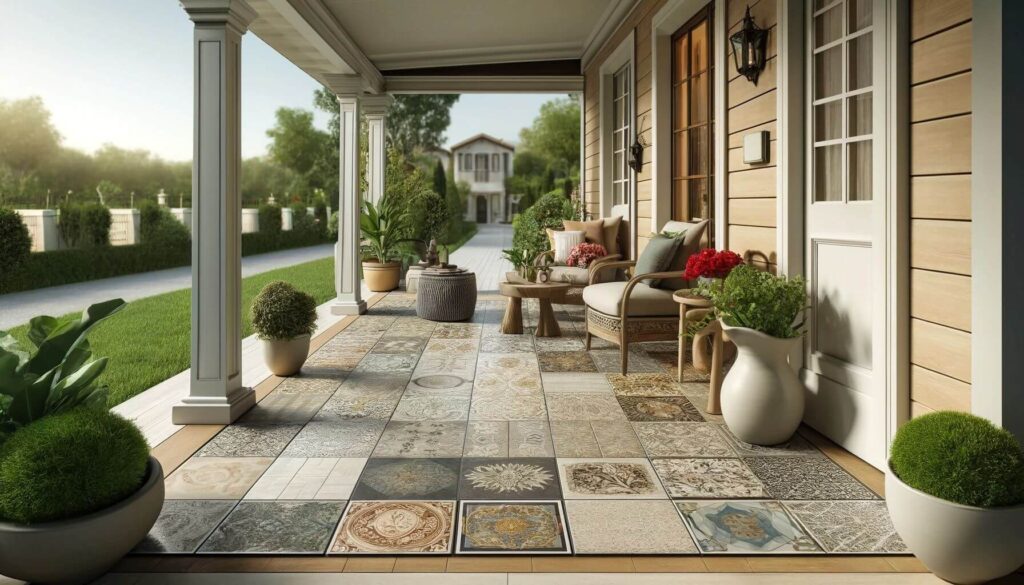
Ceramic and porcelain tiles are highly resistant to water damage. They are ideal for wet areas due to their non-porous surface. These tiles are easy to clean and maintain, making them a popular choice for bathrooms, kitchens, and even outdoor spaces.
For design inspiration, check out Home Improvement Interior Design.
Natural Stone

Natural stone, such as granite and slate, offers excellent water resistance. However, it requires proper sealing to maintain its durability. When sealed correctly, natural stone is suitable for both indoor and outdoor applications, providing a luxurious and durable option for various spaces.
Explore more about natural stone options at Masonry Stone Work.
Concrete
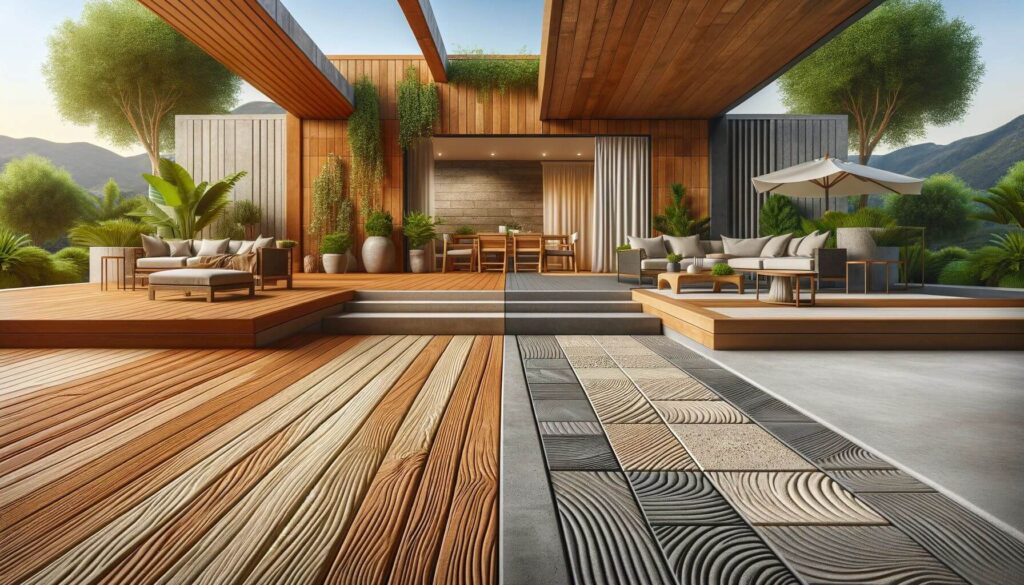
Concrete is inherently resistant to water when sealed properly. It is a versatile material used in various applications, from floors to countertops. Sealed concrete can withstand water exposure, making it a durable choice for basements, garages, and even outdoor patios.
For more on concrete applications, visit Tool for Concrete Drilling.
Brick Material
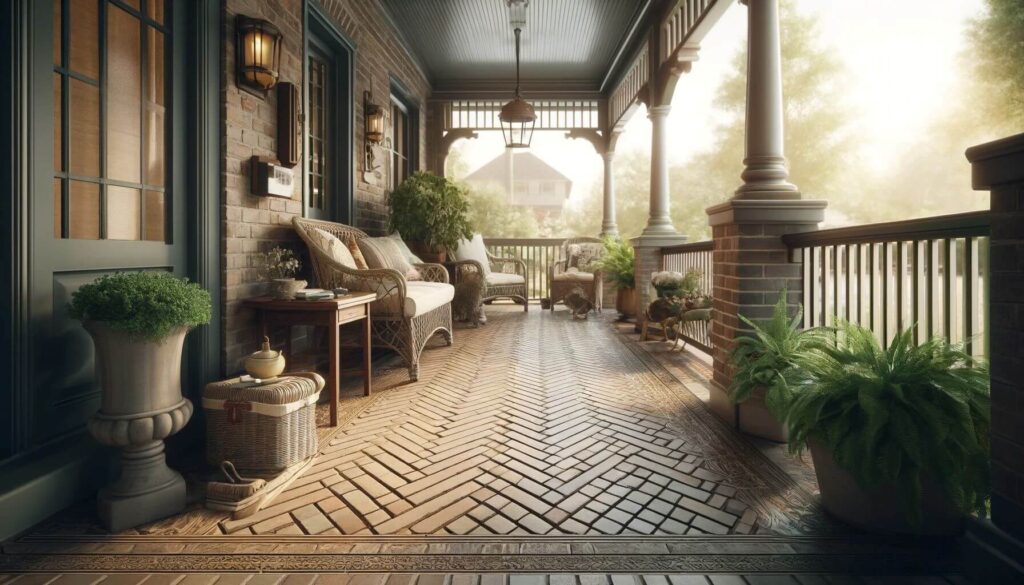
Brick is a durable and water-resistant material when used correctly. It is often used in exterior applications, such as walls and patios. Proper sealing and maintenance are crucial to prevent water damage over time. Brick provides a classic and robust option for various construction needs.
Discover more about brickwork at Masonry Solutions.
Treated Wood
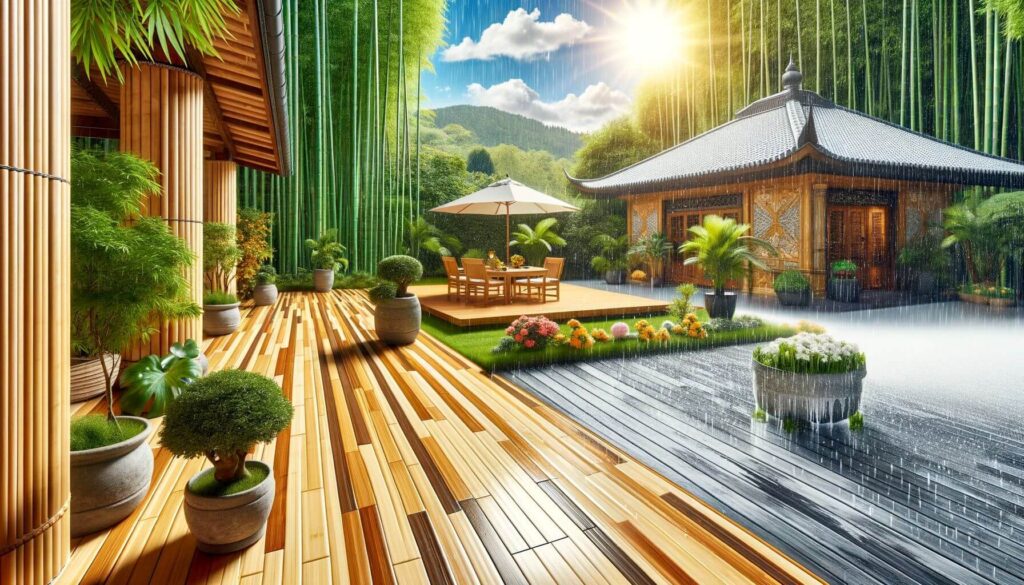
Treated wood, such as pressure-treated lumber, is designed to resist water damage. It is commonly used for outdoor applications, including decks and fences. Proper treatment and sealing can significantly extend the lifespan of wood exposed to moisture.
Learn about treated wood applications at Wood Deck vs Concrete Patio.
Composite Materials
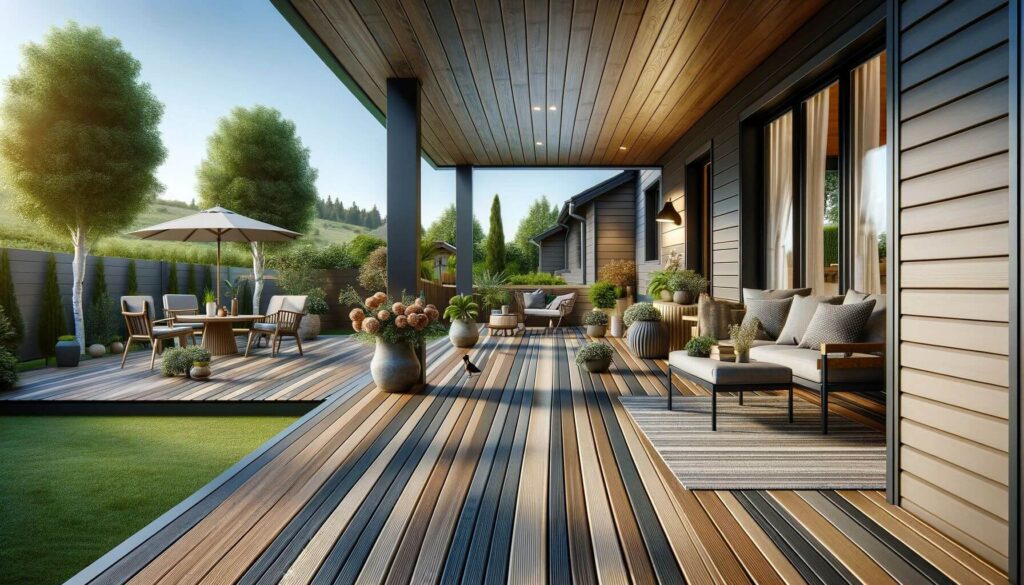
Composite materials, such as wood-plastic composites, offer high water resistance. These materials combine the natural look of wood with the durability of plastic. They are commonly used for decking, providing a long-lasting and low-maintenance option for outdoor spaces.
For more information, check out Eco-Friendly Sustainable Green Patios.
Epoxy Coatings

Epoxy coatings provide a durable, water-resistant surface for various applications, including garage floors and countertops. They create a seamless barrier that protects against water, stains, and chemicals. Epoxy is easy to clean and maintain, making it a practical choice for high-traffic areas.
Explore epoxy coatings at DIY Pergola Kit for Outdoor.
Rubber Flooring
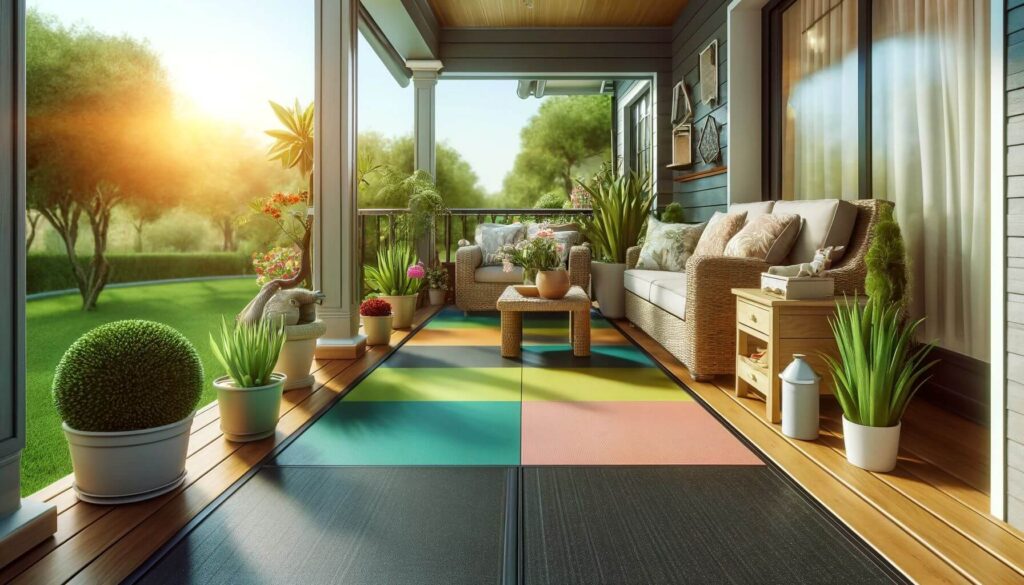
Rubber flooring is highly water-resistant and durable, making it suitable for gym areas, basements, and playrooms. It provides a slip-resistant surface and is easy to clean. Rubber flooring is available in various styles and thicknesses to meet different needs.
Learn more about rubber flooring at Eco-Friendly Building Materials.
What is water-resistant Flooring Material ?
Choosing the right water-resistant flooring material for your home depends on your specific needs and preferences. Vinyl and laminate flooring offer excellent water resistance and aesthetic appeal. Ceramic tiles and natural stone provide durability and elegance. Concrete and brick are robust options for various applications, while treated wood and composites offer outdoor durability. Epoxy coatings and rubber flooring add practical solutions for specific areas.
FAQs About Water-Resistant Flooring Material
1. Can natural stone be used in wet areas?
Yes, but it requires proper sealing to prevent water damage.
2. Is laminate flooring suitable for kitchens?
Waterproof laminate flooring is suitable for kitchens, providing it is installed correctly.
3. How do I maintain concrete surfaces?
Regular sealing and cleaning will keep concrete surfaces water-resistant and durable.
4. Are epoxy coatings good for garage floors?
Yes, epoxy provides a durable, water-resistant surface ideal for garage floors.
5. What are the benefits of rubber flooring?
Rubber flooring is water-resistant, slip-resistant, and easy to maintain.



